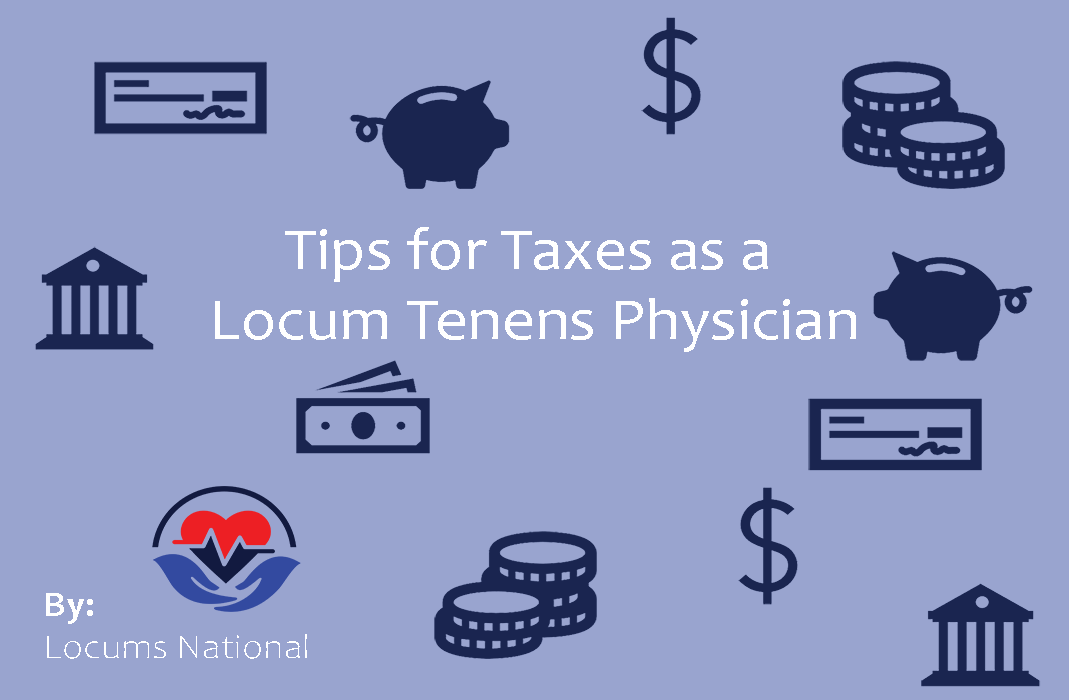Tips for Taxes as a Locum Tenens Physician
Oct. 28th, 2024 4:13 pm
Tips for Taxes as a Locum Tenens Physician
Working as an independent contractor means that you will have to approach your taxes a little differently than the average W-2 employee has to.
- Quarterly Taxes Requires a Budget: Being an independent contractor who signs a 1099 form means that you will need to file your taxes quarterly instead of annually. Because of the frequency in which you will work on your taxes, setting a budget aside for this is advisable. Some locum tenens physicians prefer to set up a separate bank account that’s solely used for tax purposes, which can help with setting aside money and organizing your finances.
- Take Advantage of Tax Deductions: There are a number of expenses that are tax deductible as a locum tenens physician, including travel, lodging, insurance, licensing and fees, meals, and home office supplies. Make sure to keep meticulous records of all the expenses you incur as a locum tenens physician, as these will come in handy when it is time to file your taxes.
- Hire a Tax Consultant: A tax consultant is an important tool to use when navigating the complexities of tax laws as a 1099 employee. They are trained specifically in these laws and regulations, and can help you navigate the sometimes convoluted experience of handling your taxes as a locum tenens provider.
With a little preparation and assistance from a tax expert, you’ll be able to handle your locum tenens physician taxes with ease while enjoying the benefits that this dynamic career choice has to offer.



